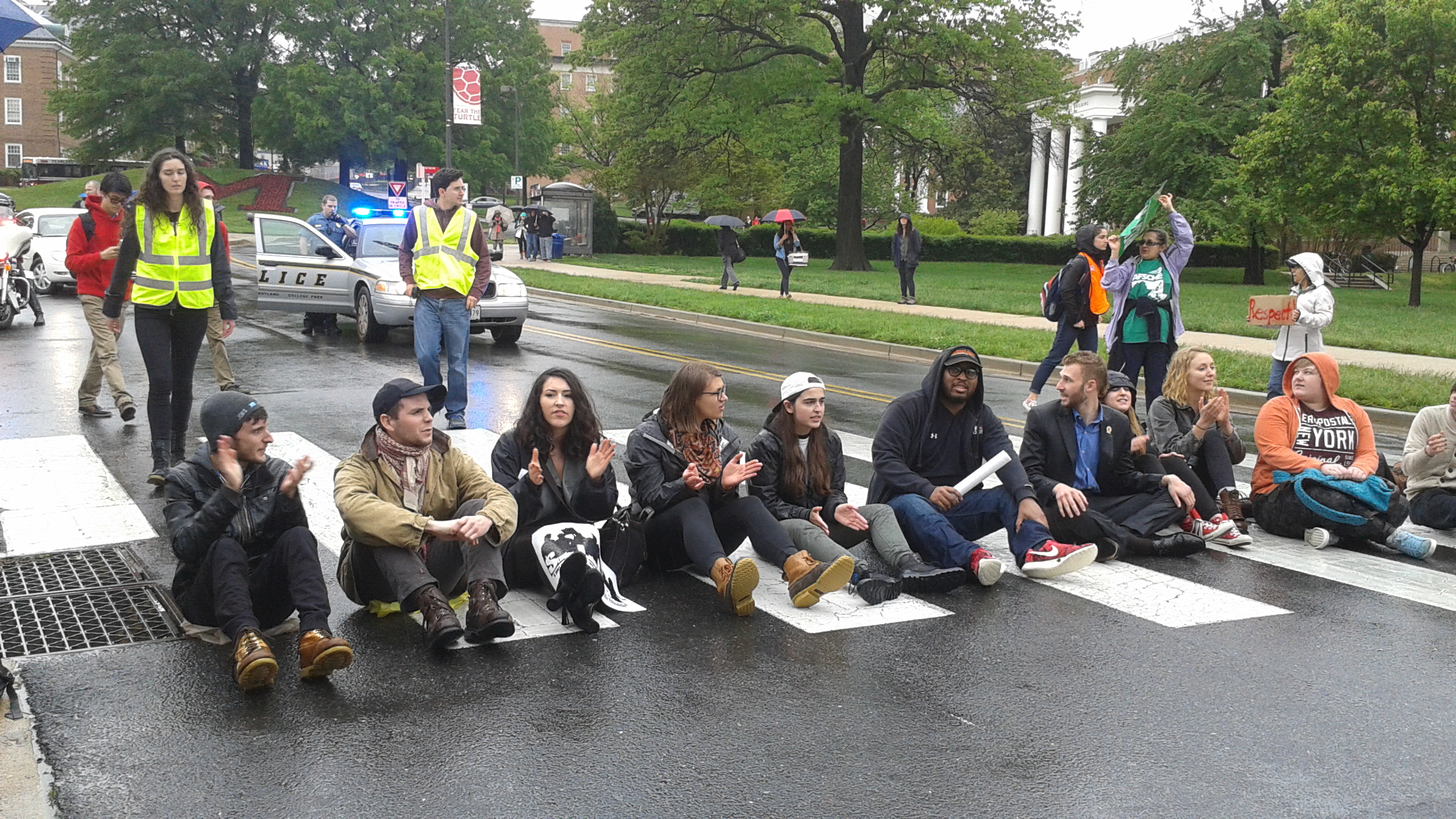A new bill proposed in the Maryland House of Delegates would grant collective bargaining rights to graduate assistants within the University System of Maryland, but some undergraduate students who were left out of the bill feel unprotected and unsupported.
The proposed legislation, developed by University of Maryland students in conjunction with Del. Marc Korman (D-Montgomery) beginning in 2017, would grant collective bargaining rights to graduate students employed by universities within the system’s 12 institutions, but omits similar protections for undergraduate student workers. These rights allow for employees to negotiate their pay and aspects of their work such as hours, conditions and benefits.
Previously, the bill included stipulations securing collective bargaining rights for undergraduate students, Korman said to the House Appropriations Committee on Tuesday. But in an effort to make the legislation narrower and easier to pass, they were removed, he added.
“Although I think undergraduate students who are working for colleges and universities should also have protected rights, I understand that relationship is a little bit different between the higher ed institutions and undergrads,” he said. “It’s less of an employer-employee relationship than it is with graduates.”
Gabby Pereira, a senior hearing and speech sciences major who works as an event support staff member in Stamp Student Union, said she felt the omission of rights for undergraduate workers was unfair.
“We’re the same people — we’re still working, we’re still going to school, it should just be the same for everyone,” she said.
[Read more: UMD student coalition teams up with Maryland delegate to push collective bargaining rights]
The bill was developed by the Fearless Student Employees Coalition, made up of members of several on-campus groups — made up of undergraduate and graduate students — such as the Graduate Student Government, Student Government Association and the Student Labor Action Project.
“Right now, our priority is getting graduate students these rights, because that’s where there’s a lot more of the demand for it, but we are open to working with undergrads to help them secure the same rights,” said Morgan Hess, a graduate student.
Hess added that she believes securing collective bargaining rights for graduate students would pave the way for undergraduate students to pursue the same protection.
“It sets a precedent,” she said. “It forces the university to develop a model of what this would look like.”
Undergraduate student workers must be paid at least the minimum wage that is set by this state, according to this university’s human resources department. That amount is currently $9.25 per hour, and is set to increase to $10.10 in July.
The minimum wage in Prince George’s County is $11.50. But this university is only required to pay student employees the state minimum wage, an issue that SLAP and other student groups wish to change in addition to their desire for collective bargaining rights.
Peter Chamberlain, a senior English major, disagreed, saying while he would not personally be affected by the legislation, he feels it is important for undergraduate students and graduate students to have the same rights.
[Read more: “Stop Loh wages for student workers”: SLAP, union members rally for workers’ rights]
“[When] you allow the graduate students to do it, and not the undergraduate students, you’re opening up this authoritative action to take away that right to a specific group,” he said, adding that the legislation could create resentment among undergraduate workers.
Cassandra Champ, a senior animal science major who works in this university’s bookstore, said she didn’t think legal protection for undergraduate workers would affect her in her current position, describing her managers as “pretty lenient.” However, she agreed that the omission of undergraduate students in the bill entirely was somewhat inequitable.
“That’s something that’s important to have — the ability to negotiate and have yourself heard,” she said. “Obviously, your hours and your pay isn’t going to be [to] the benefit of your employer. So it’s good to have your employer [have] to listen to you on it.”



